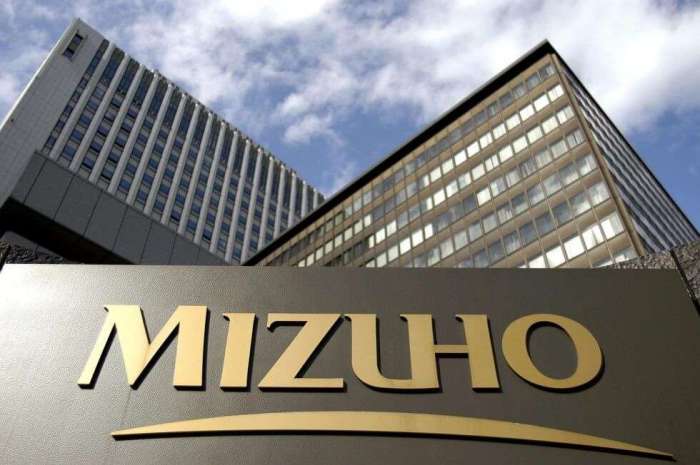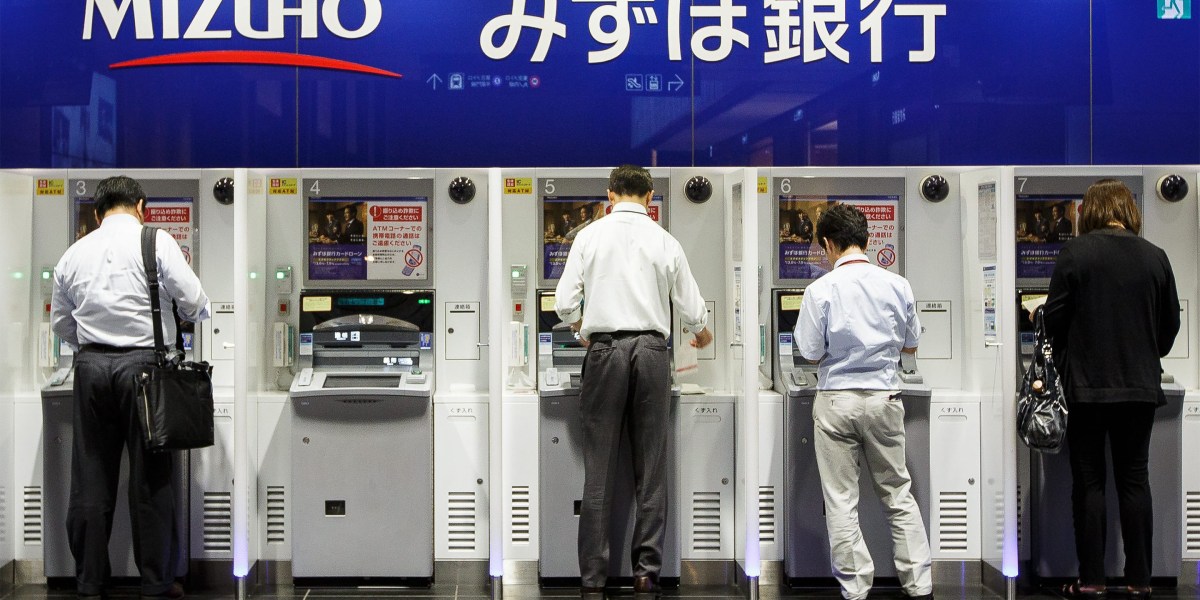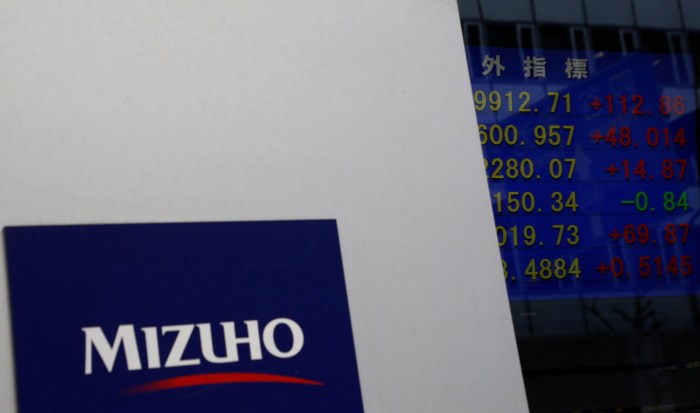Mizuho Stock Price A Comprehensive Analysis
Mizuho Financial Group: A Deep Dive

Source: netsupportsoftware.com
Mizuho stock price – Mizuho Financial Group, Inc. (Mizuho FG) is one of Japan’s three largest financial services conglomerates. This article provides a comprehensive overview of Mizuho, analyzing its historical trajectory, current market position, financial performance, investor sentiment, and future outlook, ultimately contributing to a better understanding of its stock price fluctuations.
Mizuho Financial Group Overview, Mizuho stock price
Mizuho FG emerged from the merger of three major Japanese banks – The Fuji Bank, Dai-Ichi Kangyo Bank, and the Industrial Bank of Japan – in 2000. This consolidation created a financial behemoth with a broad range of services encompassing commercial banking, investment banking, securities, and asset management. Its core business segments include retail banking, corporate banking, global markets, and asset management.
While the relative contribution of each segment fluctuates, corporate banking and global markets typically constitute the largest portions of overall revenue.
Mizuho boasts a significant global presence, with operations spanning across major financial centers worldwide. Its market presence is particularly strong in Asia, with a growing footprint in North America and Europe. However, its home market of Japan remains its most substantial revenue contributor.
| Company Name | Market Capitalization (USD Billion – approximate) | Net Income (USD Billion – approximate) | Key Business Focus |
|---|---|---|---|
| Mizuho Financial Group | 100-150 (Variable, subject to market conditions) | 5-10 (Variable, subject to market conditions) | Retail & Corporate Banking, Global Markets, Asset Management |
| Sumitomo Mitsui Financial Group | 100-150 (Variable, subject to market conditions) | 5-10 (Variable, subject to market conditions) | Retail & Corporate Banking, Global Markets, Securities |
| Mitsubishi UFJ Financial Group | 100-150 (Variable, subject to market conditions) | 5-10 (Variable, subject to market conditions) | Retail & Corporate Banking, Global Markets, Investment Banking |
Note: Market capitalization and net income figures are approximate and fluctuate based on market conditions. These figures are illustrative and should not be considered precise financial data.
Factors Influencing Mizuho Stock Price
Several factors significantly influence Mizuho’s stock price. These factors encompass macroeconomic conditions, Japanese government policies, industry trends, and the interplay of short-term and long-term economic cycles.
Changes in global interest rates directly impact Mizuho’s profitability, as they affect lending margins and the value of its investment portfolios. Global economic growth, particularly in Asia and Japan, directly correlates with Mizuho’s performance. Japanese government policies, such as monetary easing or fiscal stimulus measures, can influence the overall economic environment and subsequently Mizuho’s stock price. Industry-specific trends, like the adoption of fintech or regulatory changes within the financial sector, also play a role in shaping Mizuho’s valuation.
Short-term economic trends, such as quarterly earnings reports or unexpected global events, can cause significant short-term volatility in the stock price. Conversely, long-term economic trends, such as demographic shifts or technological advancements, exert a more gradual but potentially more impactful influence on Mizuho’s long-term prospects and stock valuation.
Mizuho’s Financial Performance

Source: fortune.com
Analyzing Mizuho’s financial statements over the past three years reveals key trends in its profitability, liquidity, and financial health. A detailed analysis would involve examining the income statement to assess revenue growth, expense management, and net income; the balance sheet to evaluate asset quality, capital adequacy, and leverage; and the cash flow statement to assess liquidity and cash generation capabilities.
Mizuho’s stock price performance often reflects broader market trends. It’s interesting to compare its volatility to that of other companies, such as ionic digital inc stock price , to gain a more comprehensive understanding of current market sentiment. Ultimately, analyzing Mizuho requires considering its specific financial health and strategic direction alongside these broader comparisons.
These analyses, while crucial, are beyond the scope of a concise overview.
A chart illustrating Mizuho’s EPS and dividend payout ratio over the past five years would show the trend of profitability and shareholder returns. For example, a consistent increase in EPS would suggest growing profitability, while fluctuations in the dividend payout ratio might reflect the bank’s capital allocation strategy and its response to market conditions. A detailed description of this chart would include specific data points and any significant deviations from trends.
| Financial Ratio | Mizuho (Approximate – illustrative purposes only) | Industry Average (Approximate – illustrative purposes only) |
|---|---|---|
| Return on Equity (ROE) | 8-12% | 7-11% |
| Debt-to-Equity Ratio | 0.5-0.8 | 0.6-0.9 |
| Net Interest Margin | 1.0-1.5% | 0.8-1.3% |
Note: Financial ratios are approximate and for illustrative purposes only. Actual figures may vary. Industry averages are estimates based on comparable institutions and may not reflect precise industry-wide statistics.
Investor Sentiment and Analyst Ratings

Source: arcpublishing.com
Investor sentiment towards Mizuho is influenced by a combination of analyst ratings, news events, and overall market conditions. A summary of recent analyst ratings and price targets would provide a quantitative assessment of investor expectations. Significant news events, such as changes in management, regulatory announcements, or major financial transactions, can significantly impact investor sentiment and stock price.
Changes in investor sentiment can lead to increased buying or selling pressure, directly affecting the stock price. Positive news generally leads to increased buying pressure and higher stock prices, while negative news can result in selling pressure and lower prices.
- Event: Announcement of a new strategic partnership. Impact: Positive, leading to a price increase.
- Event: A downgrade in credit rating by a major rating agency. Impact: Negative, leading to a price decrease.
- Event: Stronger-than-expected quarterly earnings. Impact: Positive, leading to a price increase.
- Event: Increased geopolitical uncertainty in the region. Impact: Negative, leading to a price decrease.
Future Outlook and Potential Risks
Mizuho’s future growth opportunities lie in expanding its digital banking capabilities, further penetrating Asian markets, and leveraging technological advancements to improve efficiency and offer new services. However, several risks and challenges could hinder Mizuho’s progress. Geopolitical uncertainty, particularly in Asia, regulatory changes in the financial sector, and increasing competition from both domestic and international players pose significant threats.
Technological advancements, while presenting opportunities, also introduce challenges. The adoption of fintech solutions and the increasing use of artificial intelligence could disrupt Mizuho’s traditional business model. Mizuho’s strategic initiatives, such as investments in technology and expansion into new markets, will be crucial in mitigating these risks and capitalizing on emerging opportunities. The success of these initiatives will directly influence its future performance and stock valuation.
Helpful Answers: Mizuho Stock Price
What are the major risks facing Mizuho Financial Group?
Mizuho faces risks such as geopolitical instability, increasing competition, regulatory changes, and the impact of technological advancements on its traditional business model.
How does the Japanese government influence Mizuho’s performance?
Japanese government policies on interest rates, economic stimulus, and financial regulations significantly impact Mizuho’s profitability and overall performance.
Where can I find real-time Mizuho stock price data?
Real-time Mizuho stock price data is available on major financial news websites and stock market trading platforms.
What is Mizuho’s dividend payout history?
Mizuho’s dividend payout history can be found in its annual reports and on financial data websites. It’s advisable to review several years of data to understand trends.




















